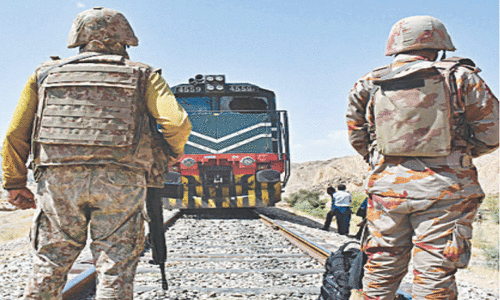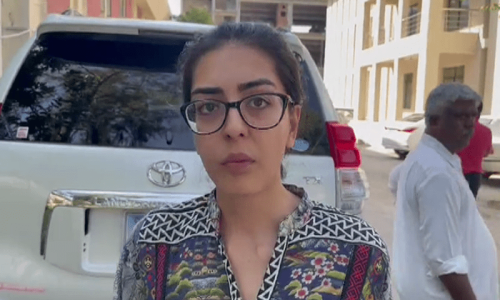PESHAWAR, Nov 1: The World Health Organization (WHO) has planned to work in collaboration with the provincial health department and other agencies to create awareness about dengue fever among the people of Haripur district, where at least eight people had fallen victim to the viral infection last month.
The world health body is considering requesting Save the Children fund, Sarhad Rural Support Programme, Rural Water Supply and Sanitation project and the UNHCR to work in collaboration with the director-general of health services to control the spread of the disease, WHO’s Peshawar-based emergency medical officer Dr Quaid Saeed told Dawn.
According to Dr Saeed, WHO’s strategy formulated in 1995 for the prevention and control of dengue fever consists of five steps:
1) Selective vector control, with community and intersectoral participation and identification of breeding sites and applying all available methods of control.
2) Active surveillance based on strong health information system depending on clinical and laboratory-based early detection of dengue fever virus.
3) Emergency preparedness consisting of plans for community education, education of health professionals, hospitalization plans and case management protocols.
4) Capacity-building and training for surveillance, laboratory diagnosis and case management, and
5) Vector control research.
The WHO has also recommended reduction in the potential breeding sites of mosquitoes by improving supply of drinking water and launching a campaign for disposal of solid waste from the region.
Protective measures included use of safe insecticides and mosquito repellents and efforts aimed at removing breeding sites at home and in neighbourhood and use of larvicides in containers that could not be disposed of or covered.
Dr Saeed said the objective of this system was early detection of an impending outbreak and to apply appropriate control measures. It includes case reporting to authorities and monitoring the progress of disease among people living in the catchment areas.
All hospitalized patients require intravenous transfusions, 20 per cent need plasma expanders and 10 per cent blood transfusions, he added.
Dr Quaid said training of health professionals on triage of patients in case of epidemics was necessary for capacity-building which required development of a criteria to identify haemorrhage dengue fever.
Meanwhile, director-general of health services Dr Jalilur Rehman though a letter has asked his counterpart in the Punjab to take precautionary measures. The letter said the area where the dengue fever outbreak was reported was adjacent to the Punjab and therefore all health units under the Punjab government that were situated near Haripur district, especially in the Attock district, should launch precautionary measures. Likewise, letters have also been issued to the WHO head in Islamabad, the UNDP, Unicef, project director health for Afghan refugees, Save the Children Fund, Sarhad Rural Support Programme, Water Supply and Sanitation Project and Prof Mohammad Suleiman, chairman of the department of zoology, University of Peshawar, requesting them to help control the outbreak of the disease.
They have been asked to pool their resources for the purpose of provision of clean drinking water, improved sanitation, mosquito control, disease surveillance, community awareness, emergency preparedness and capacity building of the health workers in the Haripur district.














































